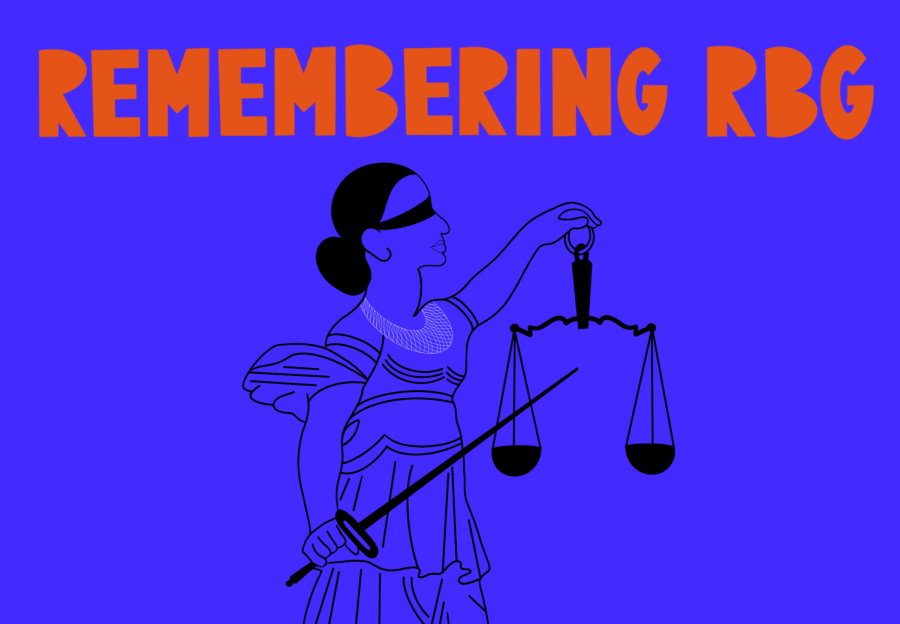“My heart sunk”: Whitman community mourns the death of Justice Ruth Bader Ginsburg
Justice Ruth Bader Ginsburg, an inspiration to many Whitman students, passed away September 18.
September 21, 2020
Supreme Court Justice Ruth Bader Ginsburg died at her home in Washington D.C. Friday night due to complications of metastatic pancreatic cancer, according to a Supreme Court press release.
While technical director of the Women’s Rights Project at the ACLU from 1972 to 1980), Ginsburg advocated for women’s rights, leading the Supreme Court to recognize the unconstituitonality of sex-based discrimination. In 1993, she became the second woman ever appointed to the Supreme Court, and the first female Jew.
As the news of her death broke, a nation began mourning—and so did the Whitman community, many of whom live no more than an hour from Ginsburg’s home.
On Friday night, hundreds of people gathered on the front steps of the Supreme Court for an impromptu vigil. Mourners united in remembrance, singing “Amazing Grace” to honor the legacy of the Court’s liberal icon. Junior Allison Udler felt a deep sense of grief at the ceremony, but also an urgency for action, she said.
“At her memorial, everyone was obviously very, very sad,” Udler said. “But right after that sad feeling, it was like, ‘we need to wake up and do something right now,’ because Ruth Bader Ginsburg was a sign of hope in a lot of women’s hearts.”
Many students felt called to action in the wake of Ginsburg’s death. While at the steps of the Supreme Court, freshman Eleanor Aronin reflected on the impact of Ginsburg’s life and the uncertainty of a future without her.
“Now I really don’t know what’s going to happen to my rights, to my reproductive system,” said Aronin. “And I shouldn’t be worried about that as a 14-year-old girl. This 87-year-old woman shouldn’t have had that responsibility resting on her.”
Ginsburg’s death occurred in the hours leading up to the start of the holiday Rosh Hashanah, a celebration of the Jewish new year. Those who pass away at the beginning of Rosh Hashanah are known as tzaddik, a Hebrew word for a righteous and spiritual person.
In the Whitman community, students honored Ginsburg on social media by posting tributes to the late Justice. One student posted an artistic rendering of Ginsburg’s famous quote: “Women belong in all places where decisions are made.” Another shared a tweet detailing the Justice’s impact in furthering women’s rights. Whitman Law and U.S. History teacher Gregory Herbert hopes that Ginsburg’s passing encourages people to act on their beliefs, he said.
“What we can learn from Ruth Bader Ginsburg is that standing up and taking action for what is right is so much better than just spreading the word,” Herbert said. “Do not be intimidated. Do not be marginalized. Be proud of who you are and fight for every right that you are entitled to.”
Ginsburg’s death has motivated a record-breaking number of donations to Democratic candidates and has galvanized a series of recent protests calling to delay the appointment of Ginsburg’s successor until after the upcoming presidential election.
Junior Maya Goelman feels the traditional Jewish phrase, zikhronah livrakha, or “may their memory be a blessing,” can be used and altered for Ginsburg.
“Instead of saying, ‘may her memory be a blessing,’ also say, ‘may her memory be a revolution,’” Goelman said. “Let the things that she did and the progress that she made inspire action in all of us to do the same.”
Maya Goelman is an opinion writer for The Black & White.












